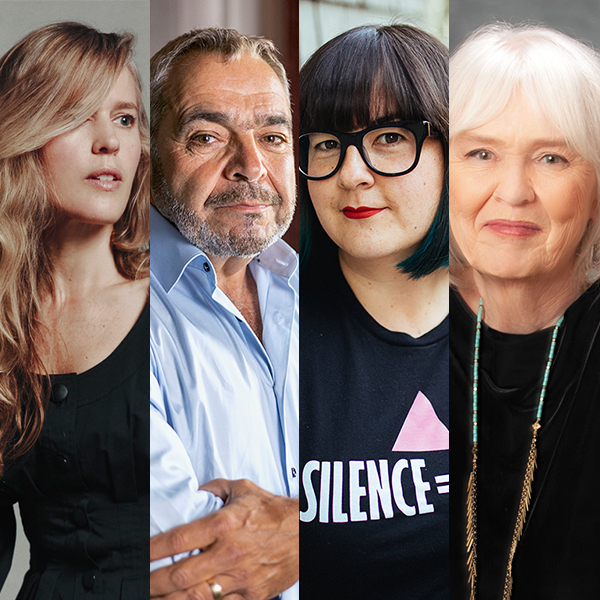Who gets to be called an entrepreneur?
In 2020, we generally picture young men in hoodies staring intently into laptops. Or perhaps a slightly more diverse cast of people dressed in business casual, discussing the merits of spreadsheets in the cloud. We may even imagine a member of the Hollywood elite, breaking out of their field and into a new wellness trend.
Rarely do we think of the Syrian restaurant owner, the person who runs the local plant shop or bakery, a freelancer who hustles ‘round the clock to meet deadlines and find new clients.
As David Sax, BA’02, argues in his latest book, The Soul of an Entrepreneur: Work and Life Beyond the Startup Myth, we’re doing a disservice to entrepreneurship — and to the vital role it plays in our society — by focusing our gaze so narrowly on what it means to be an entrepreneur.
“What drew me to write the book was this contradiction that I would see, which is that, in The Gazette, in Toronto Life, in The New York Times, in Businessweek, in all these other publications, and [in] the media and movies and books, we were hearing about this ‘golden age of entrepreneurship,’ that there’s never been a better time to be an entrepreneur,” says Sax on the phone from his home in Toronto.
That version of entrepreneurship, however, was mainly defined by tech entrepreneurship — the world of venture capital, million and billion-dollar investments, IPOs, mergers and acquisitions.
“That perception is largely a microcosm,” Sax says. In his introduction to The Soul of an Entrepreneur, Sax says idea for the book was sparked, in part, by “two wildly contrasting visions of entrepreneurship” he encountered in the span of a few days. Killing time in an airport, he spotted a topless Heidi Klum on the cover of Maxim, “INIMITABLE ENTREPRENEUR” stamped across the supermodel’s chest. Visiting his father-in-law’s grave shortly after that, he noticed an engraving on an octogenarian stranger’s nearby tombstone: “Brilliant salesman and entrepreneur until the end.”
In his newly released fourth book, Sax — who is a self-employed writer by trade — examines who gets to wear the “entrepreneur” badge of honour in this day and age. It’s not entirely new terrain, he acknowledges. All of his books, including the award-winning Save the Deli and the more recent The Revenge of Analog (longlisted for the Andrew Carnegie Medal for Excellence in Nonfiction) focus on entrepreneurs to some extent.
For his latest book, his journey starts in Toronto at Soufi’s, a Syrian restaurant in the city’s Trinity Bellwoods neighbourhood, and at Scarborough’s Crown Pastries — both owned by Syrian immigrant families whose visions of life in Canada leaned heavily on building something of their own. “That was my dream. To open a bakery,” Rasoul Salha told Sax.
Canada is a country built on small and medium sized businesses. According to Statistics Canada, there are about 1.5 million SMBs across the country and combined, these companies are responsible for employing nearly 90 per cent of Canada’s private-sector workforce. These companies make massive contributions to the country’s exports and overall GDP.
The situation is not dissimilar in the U.S., which is where Sax meets Tracy Obolsky, owner of New York’s Rockaway Beach Bakery. “I’d go to her bakery and we’d eat croissants and I’d watch her roll in and interview her, and then we’d go surfing later in the day,” he recounts. What he loved most about Obolsky’s story is that she more or less lived on her own terms. Yes, she worked hard and had only one day off a week. “But now she’s always sending me photos of her surfing and I’m like, ‘damn it,’ you know? That’s the dream.”
These small stories of struggle and victory are everywhere in entrepreneurship, Sax argues, yet the mythology of the tech startup sucks up a disproportionate amount of air in the room. He believes that the prevalent archetype of what an entrepreneur is expected to be — a Mark Zuckerberg-type figure — reinforces existing inequalities. For instance, tech funding remains male dominated, with less than three per cent of VC money in the U.S. going to women-founded companies in 2019.
Stories about tech entrepreneurs dominate the news, even though tech companies only represent a small fraction of all business activity. Large media organizations, governments and other hugely influential entities have, in a way, become entranced by the tech story, he says.
“The greater story of all the other entrepreneurs who aren’t part of that world of venture capital-funded technology startups aren’t being told, aren’t being valued. It’s not something that’s taught at business schools,” says Sax. “And yet the majority of people who graduate from universities like McGill and become entrepreneurs will go into all sorts of different fields.”
What’s gone on since the start of the Covid-19 pandemic may be an important turning point, he notes.
Small businesses, especially those in the retail and service sectors, are what give communities their flavour. Think of St-Laurent Boulevard, or Bernard Avenue in Mile End, or Sherbrooke Street in Westmount. Those streets are their businesses — the little cafés with terrasses, the tiny hardware stores with sidewalk sales, the owner-operated nail salons, the dépanneurs with extensive craft beer selections. And this dynamic plays out on different scales all over a city.
Self-isolation rules forced many people to rely on their own community’s resources — something that Sax feels has laid a new foundation for how we will think about small business in the future.
“You’re seeing the connection people have to their businesses in their communities, especially as those businesses are threatened. And the way those businesses are serving them — the way that the [local neighbourhood] coffee shop will walk a coffee over to you and put it on your front stoop. Starbucks won’t do that.
“That’s the individual entrepreneurs doing that, because they’re connected to that community. They live in it. That’s the deeper value of entrepreneurship,” says Sax.


